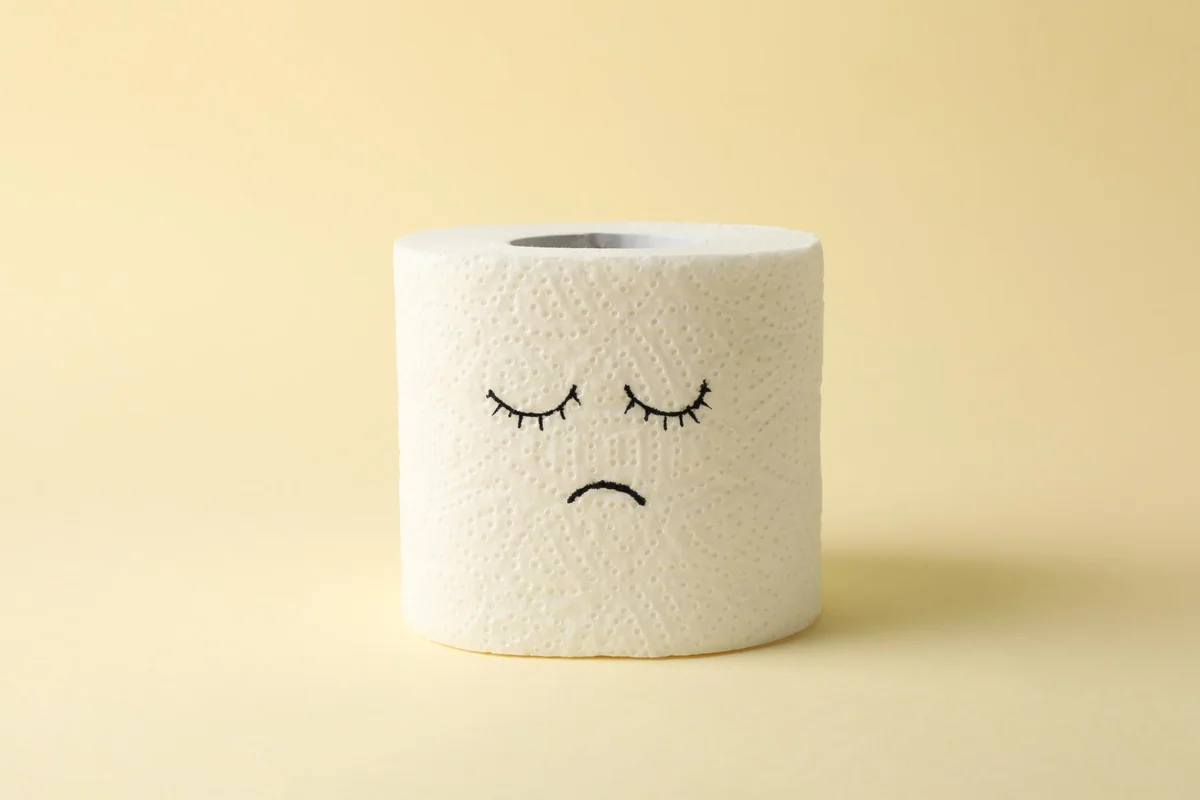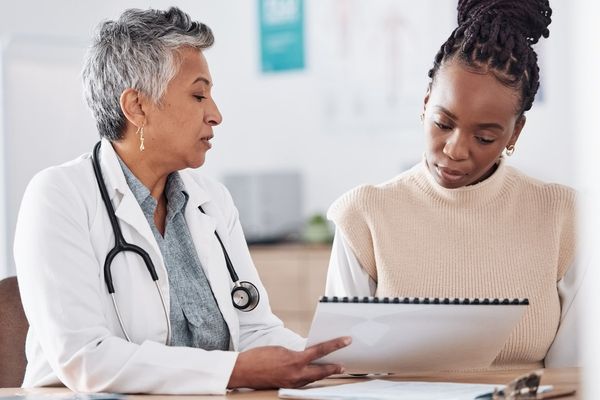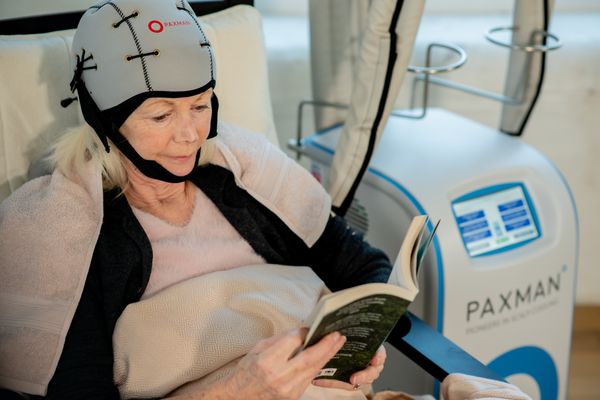Medically reviewed by Dr. Lauren R. Wilson.
- What are hemorrhoids?
- What are known causes and risk factors for hemorrhoids?
- What are the symptoms of hemorrhoids?
- When should you see your doctor?
- How are hemorrhoids diagnosed and treated?
- What is anal cancer?
- What are known causes and risk factors for anal cancer?
- What are the symptoms of anal cancer?
- Can anal cancer be caught early?
- How is anal cancer diagnosed and treated?
- What’s the takeaway?
When Charlie's Angels star Farrah Fawcett died of anal cancer in 2009, it put a spotlight on a disease that isn't talked about much but has early symptoms similar to everyday hemorrhoids. Understanding the risk factors and the differences between
anal cancer and hemorrhoids is critical to staying healthy. Here's what you should know.
What are hemorrhoids?
Hemorrhoids, also called piles, are a normal part of a person's anatomy and are part of normal bowel continence or control. What people commonly think of as hemorrhoids are actually symptomatic hemorrhoids that have become inflamed, causing bleeding, prolapse of tissue, pain and itching. These symptoms develop when the blood vessels in the rectum or anal canal become swollen. This swelling is usually the result of increased pressure from straining with bowel movements or actions that increase pressure in the perineum (the area between the anus and the genitals), such as childbirth and heavy lifting. There are two types of hemorrhoids: internal and external. Internal hemorrhoids are in the inner lining of the anus and lower rectum. External hemorrhoids are covered by the skin around the anus.
What are known causes and risk factors for hemorrhoids?
Doctors point to a variety of causes and factors for developing symptomatic hemorrhoids, including:
- Straining during a bowel movement
- Sitting on the toilet for a long period of time
- Chronic constipation or diarrhea
- A low-fiber diet
- Obesity
- Pregnancy
- Being over 50 years of age
- Lifting heavy objects
- Weakening of the tissues around the anus due to aging
What are the symptoms of hemorrhoids?
Hemorrhoid symptoms can vary depending on the type of hemorrhoids you have. For example, internal hemorrhoids inside the rectum usually can't be seen or felt because they're deep inside. However, you might see blood in your stool, on tissue or in the toilet bowl. You might also experience a hemorrhoid that has pushed through the anus (a prolapsed hemorrhoid), which can cause discomfort.
With external hemorrhoids, you're most likely to experience anal itching; swelling or lumps around the anus; rectal bleeding; and pain around the anal area, especially when sitting. Some people will experience a clot in an external hemorrhoidal vessel that can be very painful.
When should you see your doctor?
We spoke with Dr. Lauren R. Wilson, a specialist in colorectal surgery and assistant professor of surgery at Dartmouth-Hitchcock Medical Center for her input.
"If you're having any kind of issue with your bottom, go see your primary care doctor and ask them to take a look. Rectal exams used to be part of an annual physical, but a lot of doctors just don't do them anymore. You need to be open to having an exam and ask them about it."
How are hemorrhoids diagnosed and treated?
Your doctor can typically diagnose hemorrhoids on sight, especially if you have external hemorrhoids, or through internal examination with a finger and anoscope. They can often be easily treated by avoiding straining, increasing dietary fiber (often with a fiber supplement), and topical over-the-counter medication or home remedies, including sitting in a warm bath to help reduce swelling and inflammation. Pain relievers (acetaminophen, aspirin, ibuprofen) can also help to reduce discomfort. Symptoms usually go away within a few weeks. If you have persistent symptoms, your doctor might recommend a colonoscopy to rule out any other problems in your GI tract, and then office-based procedures or surgery.
What you need to remember is that if pain and bleeding persist, or are associated with pelvic pain and a fever, it's time to see your doctor to rule out any other issues such as gastrointestinal diseases, infections or anal cancer, which share similar symptoms.
What is anal cancer?
Anal cancer is a rare form of cancer that occurs within the anal canal, where normal cells mutate, become abnormal and multiply, forming tumors. These tumors invade nearby tissue and can separate and spread to different parts of the body, especially to the lymph nodes, lungs and liver.
Anal cancer is rare, representing only around 0.5% of all new cancer cases reported each year, or nearly 8,600 people (as compared with 277,000 new breast cancer cases). On average, 86,000 Americans are living with anal cancer annually, and the five-year survival rate for anal cancer is approximately 70%.
What are known causes and risk factors for anal cancer?
As with most cancers, there are multiple causes and risk factors for anal cancer. One significant correlation to note is the sexually transmitted human papillomavirus (HPV), which is a common viral infection. Roughly 85% of women and 91% of men will get HPV by the time they are 45. Detected in the majority of anal cancer cases, HPV is considered a major factor in causing anal cancer (as well as cervical cancer and cancers of the vagina, vulva, penis and throat). The HPV vaccine has been effective in reducing rates of infection and reducing rates of certain types of cancer.
Other risk factors include:
- Having many sexual partners over a lifetime
- Engaging in anal sex
- A history of HPV-associated cancer, including cervical, vulvar or vaginal cancer
- Being over 50
- Being HIV-positive
- Smoking
- Taking medications that suppress the immune system (being immunocompromised)
What are the symptoms of anal cancer?
The most common first sign of anal cancer is rectal bleeding, which is why it's a cause for concern for those with hemorrhoids. Other symptoms that are similar to hemorrhoids include pain around the rectum or anus, anal itching, and a mass or growth in the anal canal.
However, there are other symptoms of anal cancer that are distinct and should be given special attention. They include:
- A feeling of fullness around the anal area
- Abnormal discharge from the anus
- Narrow stools or changes in bowel movements
- Fecal incontinence
- Swollen lymph nodes in the groin or anal area
Can anal cancer be caught early?
Anal cancer can be caught early. "It really depends on how much someone pays attention to their symptoms," Wilson said. "Too often people keep putting off seeing their doctor while assuming their symptoms are just hemorrhoids."
How is anal cancer diagnosed and treated?
Most anal cancers are discovered because of patient symptoms. Your doctor might do a digital rectal exam and a pelvic exam with a Pap test, or could also recommend various types of diagnostic scopes, depending on the affected area.
Biopsies are also usually taken of any polyps or unusual growths. Once anal cancer is diagnosed, additional testing with imaging studies is performed to look for spread of the disease and establish a stage. Depending on the stage of the disease, most cases are treated with a combination of chemotherapy and radiation. However, depending on symptoms or if these treatments aren't effective, surgery may be recommended.
What’s the takeaway?
Even while anal cancer is rare, experts including Wilson emphasize seeing your doctor at the first sign of any problems, especially bleeding. Most patients assume "it's just hemorrhoids," but the majority of patients presenting with symptoms in the anal or rectal area have a diagnosis other than symptomatic hemorrhoids. Sometimes it's an infection or a tear in the lining of the anal canal called an anal fissure, and sometimes it's cancer. With careful evaluation and testing, your doctor can make a diagnosis, recommend appropriate treatments, and get you feeling better. And if it turns out your symptoms are from cancer, early detection is key to a positive outcome.
Resources:
Anal Cancer Foundation
American Society of Colon and Rectal Surgeons — Tips for Patients
- Signs You're Not Getting Enough Fiber - HealthyWomen ›
- How I Overcame Anal Cancer and Threw a Huge Party ... ›
- Hemorrhoids Self-Care - HealthyWomen ›





